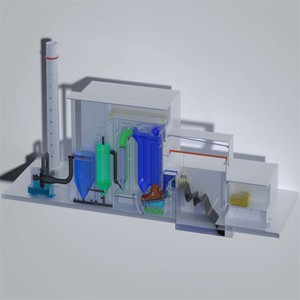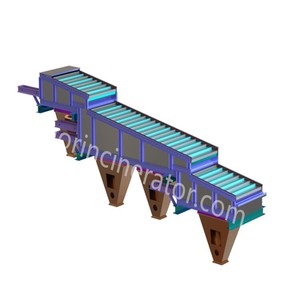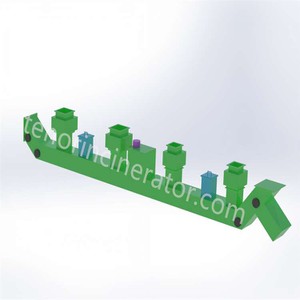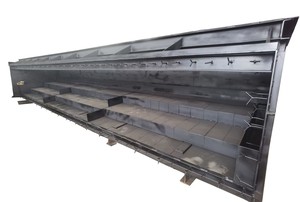At present, a large amount of domestic waste incineration slag is used in building materials, such as as as civil structural layer material, production of cement, bricklaying, etc. However, domestic waste incinerator slag contains a large number of pore structures, which affects the engineering characteristics of domestic waste incineration slag as a building material. The treatment method of domestic waste incineration slag comprises the following steps:
(1) Take the freshly quenched domestic waste incineration slag in a closed container with a ventilation device, and force ventilation for weathering;
(2) Soak the weathered domestic waste incineration slag in a mixed solution of nano silica and nano calcium carbonate;
(3) Drain the soaked domestic waste incineration slag and dry it, and then cool it to room temperature.
In the process of forced ventilation, the air continuously oxidizes the organic matter in the domestic waste incineration slag in a hot and humid environment to make the organic matter content less than 1.5%, which reduces the formation of new voids in the use of domestic waste incineration slag and improves the stability of domestic waste incineration slag. At the same time, the carbon dioxide in the air and the free heavy metals in the domestic waste incineration slag carbonize to form carbonates, which improves the stability of heavy metals in the environment.
The air volume and ventilation time in the process of weathering treatment have a great influence on the modification of slag. Preferably, the ventilation volume in step (1) is 0.4-0.8m3/kg·min, the ventilation time is 70~80h, and the control temperature in step (1) is 25-35°C during weathering.
Ventilation rate below 0.4m3/kg·min will lead to the reduction of organic matter degradation efficiency in domestic waste incineration slag, and ventilation rate higher than 0.8m3/kg·min will lead to the mass loss of small particles of domestic waste incineration slag, and the degradation effect of organic matter and the quality loss of slag in the preferred range of 0.4-0.8m3/kg·min can be controlled in a good range. Ventilation time affects the degree of degradation and degradation rate of organic matter, ventilation time less than 70h will lead to incomplete degradation of organic matter, ventilation time higher than 80h, the degradation of organic matter tends to be slow, and will lead to the clay of domestic waste incineration slag, affecting the particle state of slag, control within 70~80h, organic matter can be completely degraded, and the degradation rate can also meet the requirements of the furnace for particle state.
In the soaking process, nano silica and nano calcium carbonate fill the pores in the slag, reduce the porosity of domestic waste, and increase the compressive strength of domestic waste incineration slag as a building material. At the same time, the encapsulation of nano silica and nano calcium carbonate was used to further reduce the dissolution of free heavy metals in domestic waste incineration slag.




